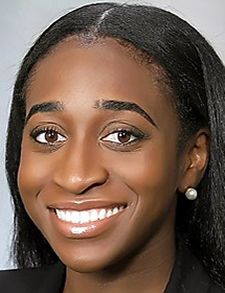Adult Hospitalizations from Immigration-detention Facilities

Dr. Woodruff
Clinical question: What are the causes of hospitalizations from immigration-detention facilities and what is their relative morbidity?
Background: Over the last three decades, an exponential increase in detained individuals has overwhelmed the capabilities of immigration jails and prisons to attend to people’s basic health needs, prevent the spread of infectious diseases, and address the well-known psychiatric impacts of immigration detention and incarceration. Despite mortality case reports, little is known about this vulnerable population’s morbidity or other health outcomes.
Study design: Cross-sectional study
Setting: Federal and privately owned hospitals in Texas and Louisiana between 2015 and 2018
Synopsis: Analysis of U.S. Immigration and Customs Enforcement’s (ICE’s) payer designation and geospatial identifiers found 887 hospitalizations of adults aged 18 and older attributed to immigration facilities. Hospitalizations from ICE custody were largely related to infectious disease (179, 24.7%) and psychiatric disease (145, 20.3%). Meanwhile, hospitalizations from U.S. Customs and Border Protection custody were predominantly related to trauma and toxic exposure (17, 17.0%), heat exposure, syncope and rhabdomyolysis (16, 16.0%), infectious diseases (16, 16.0%), and obstetric presentations (16, 16.0%). Seventy-two (8.1%) hospitalizations required ICU admission and 175 (19.5%) required intermediate ICU, higher than expected as morbidity is generally lower among new immigrants than U.S.-born individuals. This analysis focuses on Texas and Louisiana since a significant portion of detained immigrants are in these states. This period chosen covers both Democratic and Republican administrations. Limitations to this analysis include it being cross-sectional; therefore, no causality can be claimed. Additionally, this study does not reflect modern comorbidities and structural changes related to COVID-19.
Bottom line: Top causes of hospitalizations of immigration-center detainees were found to be infectious and psychiatric, among many other comorbidities, highlighting the fact that ongoing advocacy is needed to ensure that policymakers aim to mitigate the medical risks of immigration detention by improving access to medical and psychiatric care in facilities.
Citation: Nwadiuko J, Diaz C, et al. Adult hospitalizations from immigration-detention in Louisiana and Texas, 2015-2018. PLOS Glob Public Health. 2022;2(8):e0000432. doi: 10.1371/journal.pgph.0000432.
Dr. Woodruff is a hospitalist and director of diversity, equity, and inclusion at Johns Hopkins Hospital, and an assistant professor of medicine at Johns Hopkins University School of Medicine in Baltimore.